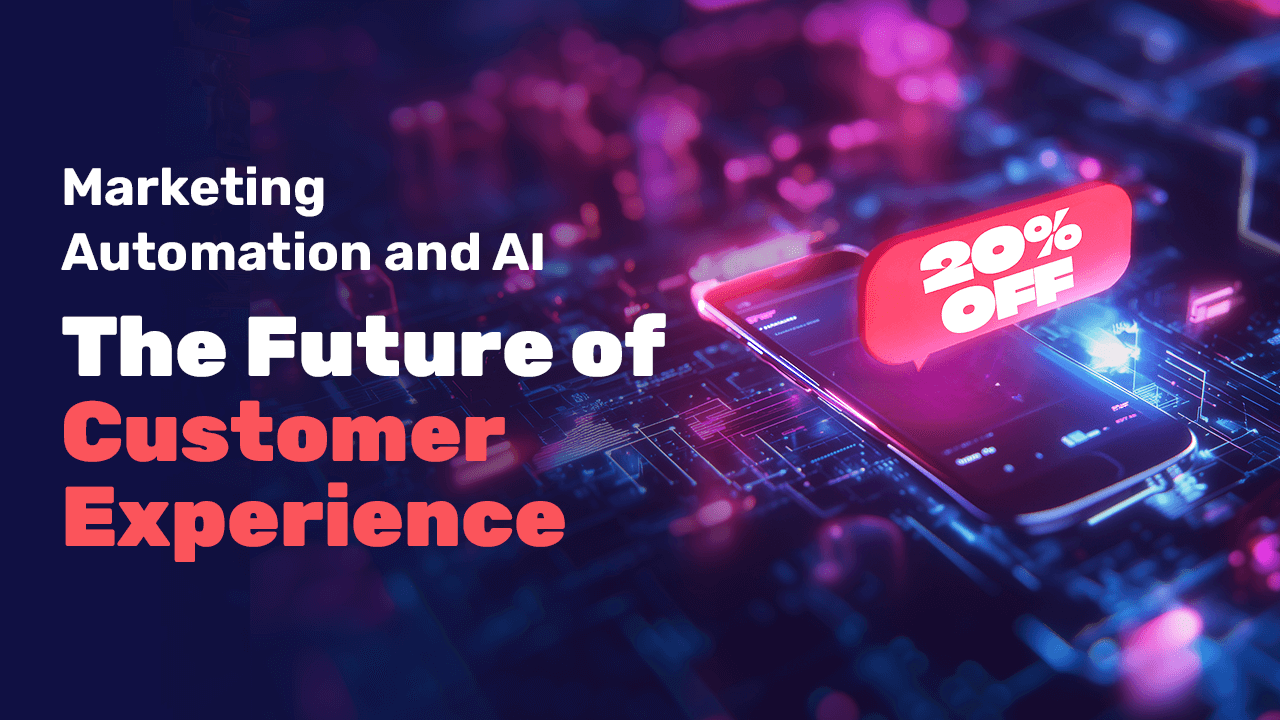Marketing Automation and AI: The Future of Customer Experience

Today’s customers seek a personalized, convenient, and precise buying or service experience, beyond just quality products at competitive prices. Businesses and brands that have embraced this insight are required to create interactions that go beyond traditional marketing. This is where marketing automation and artificial intelligence (AI) come into play. By integrating these tools effectively, businesses can streamline marketing processes, offer relevant content, and deliver real-time, tailored customer experiences. AI technology enables the analysis of large volumes of data and the identification of patterns, providing deep insights into customer needs, leading to improved customer experiences and creating genuine added value.
Marketing Automation: Crafting an Advanced Customer Journey
Marketing automation today goes far beyond simply sending automated messages to customers. It involves managing the customer journey throughout its lifecycle—from the first interaction with the brand, through the purchase, and beyond. Automation allows businesses to create personalized interactions at every touchpoint, manage multi-channel communication integratively, and measure the effectiveness of marketing actions in real-time. This makes the customer experience more cohesive and relevant, enabling the business to adjust its strategy based on customer feedback.
AI in Marketing: Real-Time Analytics and Customization
The rise of AI is what has taken marketing automation to the next level. AI allows for the analysis of vast amounts of data to understand customer needs and preferences and to predict their behavior. For example, AI tools can analyze website visitor behavior and deliver real-time offers, such as discounts or relevant content, resulting in a proactive, rather than reactive, customer experience. The ability of AI to dynamically tailor the customer journey improves the efficiency and effectiveness of marketing, creating interactions that give each customer a personalized experience.
The Combination of Automation and AI: Full Integration for a Superior Customer Experience
The most significant advantage comes when combining marketing automation with AI. This integration allows businesses to understand customers on a deeper level and manage customer journeys intelligently and personally. For example, when an AI-driven automation system detects a customer showing interest in a particular product, it can send them a personalized message with a relevant offer before they leave the site. This creates a seamless, multi-channel customer experience tailored to the customer’s needs, leading to higher conversion rates and better marketing performance.
The Power of AI in Marketing: Insights from Research
Recent studies highlight the enormous potential of AI in marketing automation. A study from Harvard University shows how AI is used daily to generate precise insights and enable personalization in marketing. AI tools create advanced interactions, such as real-time personalized recommendations. Additionally, MIT’s research points to tools like “Co-LLM” that improve the accuracy of customer communications. A report from “Our World in Data” discusses the use of large language models to create high-quality content tailored to various target audiences. These examples underscore how the correct implementation of these technologies can lead to substantial business improvements.
Challenges and Solutions in Implementing Marketing Automation and AI
While there are many benefits, the implementation of marketing automation and AI also presents challenges, particularly regarding data management in an ethical and efficient manner. To maximize AI’s potential, businesses must ensure proper data collection and management, while also protecting customer privacy. Additionally, successful integration of these tools requires close collaboration between digital marketing, IT, and data teams. The solution lies in a structured implementation process that includes clear goal setting, secure data management, and continuous optimization.
Looking Ahead: Emerging Trends in Marketing Automation and AI
Marketing automation and AI continue to evolve, driving new trends:
- Generative AI: One of the most notable trends is the use of AI tools to create original content such as text, images, and high-quality videos. Systems like GPT-4 allow businesses to enhance customer experiences by delivering dynamic, real-time marketing messages.
- AI in Customer Service: AI-powered chatbots that provide 24/7 support improve customer satisfaction.
- AI in Physical Touchpoints: Integrating AI technologies into physical stores may offer real-time recommendations to customers in physical spaces as well.
The future of marketing automation and AI brings opportunities for growth and innovation, and businesses should prepare by investing in advanced technologies and continuous optimization.
The Business Potential of Marketing Automation and AI
Marketing automation and AI are essential tools that allow businesses to create more tailored, relevant, and efficient customer experiences. Through deep data analysis and personalized messaging, companies can enhance customer engagement and loyalty, gaining a competitive edge. However, success in implementing these tools requires comprehensive planning, ethical data management, and collaboration between various teams within the organization. Businesses that recognize the potential of these tools and apply them wisely will lead the market and maintain their relevance in the future.







